Strictly Personal
Is it too early to judge Tinubu? By Azuka Onwuka
Published
3 months agoon

As the administration of President Bola Tinubu goes into its eighth month, some people believe it is too early to judge him, while others believe it is enough time. Given Tinubu’s public relations savviness, a group has started to run a TV commercial, urging Nigerians to continue to support him and give him more time to produce the expected dividends of democracy.
Buhari was so aloof that anybody who took over from him and took some steps would have some things to show as distinguishing factors. Buhari did not fail because he didn’t do enough or was unlucky to be beset by problems beyond him. He was the only Nigerian president that was so aloof, detached and unconcerned that he could not sack erring aides or call aides or officers to them, including those who were working against one another and the nation. There was something incomprehensible and inexplicable about the type of leadership Buhari offered Nigeria. It was as if he completely did not care about what happened to Nigeria as long as some preferred groups of his were not adversely affected.
Talking did not move him. Complaining did not move him. Advising did not move him neither did ridiculing. It seemed that his life-long ambition was to be called an elected president to wipe away the image of a dictator who ruled the country with the force of a gun. And having achieved that, he was satisfied so much that nothing mattered to him. His illness also made things worse. After his recovery, it seemed he no longer cared about much. He was just satisfied with doing the minimal. After the illness, it seemed as if he was not fully conscious of the things happening around him. It was only when he spoke in one of the once-in-a-blue-moon interviews that it looked as if he was aware of happenings around him.
During the campaign period, Tinubu and members of the All Progressives Congress were careful not to criticise Buhari and the impact of his misgovernance on Nigeria. They did not want anything that could anger him and make him work against them at the polls. Tinubu even praised him a few times and promised to continue with his policies if elected. They kept on with the window dressing until the Independent National Electoral Commission declared Tinubu the winner and Tinubu got inaugurated as the president. From that point, they dropped the pretences and started telling the nation that Buhari handed a ruined economy to Tinubu.
Tinubu himself set the ball rolling in July in a coded way when he addressed the nation on the worsening socio-economic challenges. In a speech titled “After Darkness Comes the Glorious Dawn,” he bemoaned the various problems that the country was facing. He, however, ended the speech on a positive note by saying: “I assure you, my fellow countrymen and women, that we are exiting the darkness to enter a new and glorious dawn.” Although Tinubu was not directly blaming Buhari, that statement implied that the era of darkness he inherited from Buhari was coming to an end.
However, six months into his administration, Tinubu was no longer ready to sugar-coat the Buhari administration. He didn’t want to be solely blamed for the situation of the economy. In November, a key figure of the Tinubu administration said that Tinubu inherited a bankrupt country. While speaking at the chief of defence intelligence annual conference, the National Security Adviser, Nuhu Ribadu, made the assertion. Ribadu said inter alia:
“We are facing very serious budgetary constraints. It is okay for me to tell you. It is fine for you to know. We have a very serious situation,” he said.
“We have inherited a very difficult country, a bankrupt country to the extent that we are paying back what was taken. It is serious.”
Following the depreciation of the naira, rising cost of things as well as regular killings and kidnappings taking place in Nigeria, many people – including Tinubu’s supporters – had begun to criticise him. That seemed to have made Tinubu to decide that the time to keep quiet over what he inherited from Buhari was over.
The comment by Ribadu was like a cue for other APC people to start openly blaming Buhari for the woes of the country. That same November, Ogun State Governor, Dapo Abiodun, said the country was almost in a comma when Tinubu came into office. “Tinubu inherited an administration that was almost comatose,” he noted.
In December, an APC chieftain and former governor of Osun State, Chief Bisi Akande, blamed Buhari for the hardship Nigerians are facing because of the removal of fuel subsidy. He argued that if Buhari had taken the courageous step of removing the fuel subsidy in 2015 when he was elected, Nigerians would have adjusted to it by now.
But many Nigerians criticised the APC members for playing the same script that Buhari played. For the eight years he was in office, Buhari and his aides and other APC members blamed his predecessor, Goodluck Jonathan, for the woes of the country. Tinubu was reminded that during his campaign, he promised to solve the myriad of problems of Nigeria regarding security, economy, health, education, agriculture, electricity, etc.
Eight months may not be enough for an administration to change the fortunes of a country, but it is enough to start laying the foundation for such a turnaround. It is enough for an administration to show signs that it is genuinely eager to break with the past and do things differently. Nothing of that nature has been seen in the administration of Tinubu. And because Tinubu has been doing the regular, he has not been able to convince the people to believe that a new era has begun.
The naira has continued to speedily depreciate. When Buhari took over in 2015, one dollar was exchanged in the parallel market for about N220. By the time Buhari left in May 2023, the exchange rate had dropped to about N750 for a dollar. In the eight months of Tinubu’s administration, the naira has plummeted to about N1,350 – almost 100 per cent. The sad part is that there is no sign that the fall of the naira will stop soon.
Also, inflation has continued to rise. Expectedly, prices of goods and services have been rising too. Corruption has not shown any sign of stopping. But the most critical aspect of Nigeria’s problems is the insecurity. Kidnapping for ransom as well as the massacre of communities by bandits have been the scariest issues facing most Nigerians. Consequently, many financially comfortable people who never fell into the group eager to leave Nigeria have become eager to relocate.
However, one area that has done well is the stock market, which has performed as one of the best in the world. The curious part is that nobody has been able to explain why the Nigerian Stock Exchange has been doing extremely well at a time the economy is not doing well. For example, while at the end of December 2023, Unilever ceased the production of Omo (which has been the generic name for detergent in Nigeria for many decades), Lux, Sunlight, etc, the Nigerian Stock Exchange ended as the second-best exchange in the world behind Argentina.
The task of governing Nigeria at a time like this is daunting but not insurmountable. The most important trait a leader needs to achieve that is by winning the trust of the people. And to be trusted, a leader must lead by example and display top-level transparency, honesty and humility.
You may like
-


Nigeria offers oil majors faster exit if …
-


Nigeria’s Security Exchange chief to meet foreign, local crypto exchanges, others over crypto regulation
-
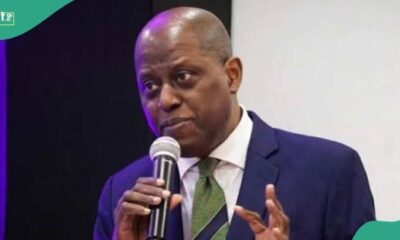

Nigeria’s central bank blames food inflation on govt’s purchase of palliatives
-
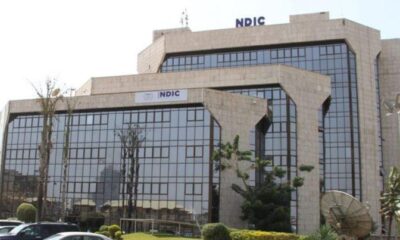

Nigeria’s Insurance Corporation raises maximum deposit coverage from N500k to N5m
-
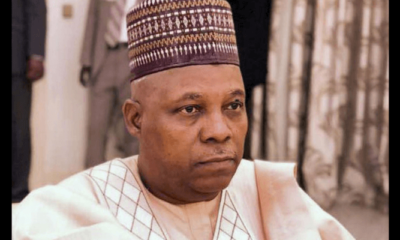

Nigeria’s economy will witness positive changes after painful sacrifice— VP Shettima
-
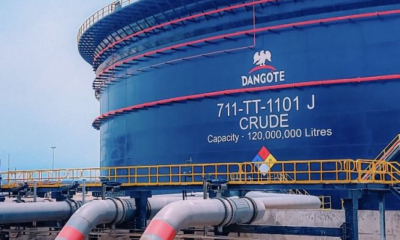

Nigeria’s Dangote refinery set to get valid operating licence
Strictly Personal
This Sudan war is too senseless; time we ended it, By Tee Ngugi
Published
6 days agoon
April 28, 2024
Why are the Sudanese Armed Forces (SAF) and the paramilitary Rapid Support Forces (RPF) engaged in a vicious struggle? It is not that they have ideological, religious or cultural differences.
Not that people should fight because of these kinds of differences, but we live in a world where social constructions often lead to war and genocide. It is not that either side is fighting to protect democracy. Both sides were instruments of the rapacious dictatorship of Omar el-Bashir, who was overthrown in 2019.
Both are linked to the massacres in Darfur during Bashir’s rule that led to his indictment by the International Criminal Court for crimes against humanity. They both stood by as ordinary, unarmed people took to the streets and forced the removal of the Bashir regime.
None of these entities now fighting to the last Sudanese citizen has any moral authority or constitutional legitimacy to claim power. They both should have been disbanded or fundamentally reformed after the ouster of Bashir.
The SAF and the RSF are fighting to take over power and resources and continue the repression and plunder of the regime they had supported for so long. And, as you can see from news broadcasts, they are both well-versed in violence and plunder.
Since the fighting began in 2023, both sides have been accused of massacres that have left more than 30,000 people dead. Their fighting has displaced close to 10 million people. Their scramble for power has created Sudan’s worst hunger crisis in decades. Millions of refugees have fled into Chad, Ethiopia and South Sudan.
The three countries are dubious places of refuge. Chad is a poor country because of misrule. It also experiences jihadist violence. Ethiopia is still simmering with tensions after a deadly inter-ethnic war.
And South Sudan has never recovered from a deadly ethnic competition for power and resources. African refugees fleeing to countries from which refugees recently fled or continue to flee sums up Africa’s unending crisis of governance.
Africa will continue to suffer these kinds of power struggles, state failure and breakdown of constitutional order until we take strengthening and depersonalising our institutions as a life and death issue. These institutions anchor constitutional order and democratic process.
Strong independent institutions would ensure the continuity of the constitutional order after the president leaves office. As it is, presidents systematically weaken institutions by putting sycophants and incompetent morons in charge. Thus when he leaves office by way of death, ouster or retirement, there is institutional collapse leading to chaos, power struggles and violence. The African Union pretends crises such as the one in Sudan are unfortunate abnormally. However, they are systemic and predictable. Corrupt dictatorships end in chaos and violence.
Tee Ngugi is a Nairobi-based political commentator.
Strictly Personal
Air Peace, capitalism and national interest, By Dakuku Peterside
Published
3 weeks agoon
April 16, 2024
Nigerian corporate influence and that of the West continue to collide. The rationale is straightforward: whereas corporate activity in Europe and America is part of their larger local and foreign policy engagement, privately owned enterprises in Nigeria or commercial interests are not part of Nigeria’s foreign policy ecosystem, neither is there a strong culture of government support for privately owned enterprises’ expansion locally and internationally.
The relationship between Nigerian businesses and foreign policy is important to the national interest. When backing domestic Nigerian companies to compete on a worldwide scale, the government should see it as a lever to drive foreign policy, and national strategic interest, promote trade, enhance national security considerations, and minimize distortion in the domestic market as the foreign airlines were doing, boost GDP, create employment opportunities, and optimize corporate returns for the firms.
Admitted nations do not always interfere directly in their companies’ business and commercial dealings, and there are always exceptions. I can cite two areas of exception: military sales by companies because of their strategic implications and are, therefore, part of foreign and diplomatic policy and processes. The second is where the products or routes of a company have implications for foreign policy. Air Peace falls into the second category in the Lagos – London route.
Two events demonstrate an emerging trend that, if not checked, will disincentivize Nigerian firms from competing in the global marketplace. There are other notable examples, but I am using these two examples because they are very recent and ongoing, and they are typological representations of the need for Nigerian government backing and support for local companies that are playing in a very competitive international market dominated by big foreign companies whose governments are using all forms of foreign policies and diplomacy to support and sustain.
The first is Air Peace. It is the only Nigerian-owned aviation company playing globally and checkmating the dominance of foreign airlines. The most recent advance is the commencement of flights on the Lagos – London route. In Nigeria, foreign airlines are well-established and accustomed to a lack of rivalry, yet a free-market economy depends on the existence of competition. Nigeria has significantly larger airline profits per passenger than other comparable African nations. Insufficient competition has resulted in high ticket costs and poor service quality. It is precisely this jinx that Air Peace is attempting to break.
On March 30, 2024, Air Peace reciprocated the lopsided Bilateral Air Service Agreement, BASA, between Nigeria and the United Kingdom when the local airline began direct flight operations from Lagos to Gatwick Airport in London. This elicited several reactions from foreign airlines backed by their various sovereigns because of their strategic interest. A critical response is the commencement of a price war. Before the Air Peace entry, the price of international flight tickets on the Lagos-London route had soared to as much as N3.5 million for the economy ticket. However, after Air Peace introduced a return economy class ticket priced at N1.2 million, foreign carriers like British Airways, Virgin Atlantic, and Qatar Airways reduced their fares significantly to remain competitive.
In a price war, there is little the government can do. In an open-market competitive situation such as this, our government must not act in a manner that suggests it is antagonistic to foreign players and competitors. There must be an appearance of a level playing field. However, government owes Air Peace protection against foreign competitors backed by their home governments. This is in the overall interest of the Nigerian consumer of goods and services. Competition history in the airspace works where the Consumer Protection Authority in the host country is active. This is almost absent in Nigeria and it is a reason why foreign airlines have been arbitrary in pricing their tickets. Nigerian consumers are often at the mercy of these foreign firms who lack any vista of patriotism and are more inclined to protect the national interest of their governments and countries.
It would not be too much to expect Nigerian companies playing globally to benefit from the protection of the Nigerian government to limit influence peddling by foreign-owned companies. The success of Air Peace should enable a more competitive and sustainable market, allowing domestic players to grow their network and propel Nigeria to the forefront of international aviation.
The second is Proforce, a Nigerian-owned military hardware manufacturing firm active in Rwanda, Chad, Mali, Ghana, Niger, Burkina Faso, and South Sudan. Despite the growing capacity of Proforce in military hardware manufacturing, Nigeria entered two lopsided arrangements with two UAE firms to supply military equipment worth billions of dollars , respectively. Both deals are backed by the UAE government but executed by UAE firms.
These deals on a more extensive web are not unconnected with UAE’s national strategic interest. In pursuit of its strategic national interest, India is pushing Indian firms to supply military equipment to Nigeria. The Nigerian defence equipment market has seen weaker indigenous competitors driven out due to the combination of local manufacturers’ lack of competitive capacity and government patronage of Asian, European, and US firms in the defence equipment manufacturing sector. This is a misnomer and needs to be corrected.
Not only should our government be the primary customer of this firm if its products meet international standards, but it should also support and protect it from the harsh competitive realities of a challenging but strategic market directly linked to our national military procurement ecosystem. The ability to produce military hardware locally is significant to our defence strategy.
This firm and similar companies playing in this strategic defence area must be considered strategic and have a considerable place in Nigeria’s foreign policy calculations. Protecting Nigeria’s interests is the primary reason for our engagement in global diplomacy. The government must deliberately balance national interest with capacity and competence in military hardware purchases. It will not be too much to ask these foreign firms to partner with local companies so we can embed the technology transfer advantages.
Our government must create an environment that enables our local companies to compete globally and ply their trades in various countries. It should be part of the government’s overall economic, strategic growth agenda to identify areas or sectors in which Nigerian companies have a competitive advantage, especially in the sub-region and across Africa and support the companies in these sectors to advance and grow to dominate in the African region with a view to competing globally. Government support in the form of incentives such as competitive grants ,tax credit for consumers ,low-interest capital, patronage, G2G business, operational support, and diplomatic lobbying, amongst others, will alter the competitive landscape. Governments and key government agencies in the west retain the services of lobbying firms in pursuit of its strategic interest.
Nigerian firms’ competitiveness on a global scale can only be enhanced by the support of the Nigerian government. Foreign policy interests should be a key driver of Nigerian trade agreements. How does the Nigerian government support private companies to grow and compete globally? Is it intentionally mapping out growth areas and creating opportunities for Nigerian firms to maximize their potential? Is the government at the domestic level removing bottlenecks and impediments to private company growth, allowing a level playing field for these companies to compete with international companies?
Why is the government patronising foreign firms against local firms if their products are of similar value? Why are Nigerian consumers left to the hands of international companies in some sectors without the government actively supporting the growth of local firms to compete in those sectors? These questions merit honest answers. Nigerian national interest must be the driving factor for our foreign policies, which must cover the private sector, just as is the case with most developed countries. The new global capitalism is not a product of accident or chance; the government has choreographed and shaped it by using foreign policies to support and protect local firms competing globally. Nigeria must learn to do the same to build a strong economy with more jobs.
EDITOR’S PICK
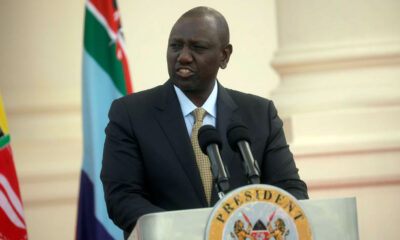

Kenya: President Ruto hints at ‘dire’ weather outlook as Cyclone Hidaya nears
President William Ruto has announced that the severe rains that have been plaguing Kenya for the past several weeks resulting...
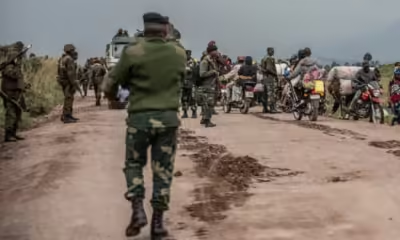

Again, Rwanda denies it attacked displaced persons in DR Congo
For the sixteenth time, Rwanda refuted US charges on Saturday that its troops attacked a camp for internally displaced persons...


Nigeria offers oil majors faster exit if …
Oil-rich West African country, Nigeria, has offered major oil companies, such as Exxon Mobil and Shell, that planned to leave...


Nigeria’s Security Exchange chief to meet foreign, local crypto exchanges, others over crypto regulation
On Monday, local and international cryptocurrency exchanges will meet with Dr. Emomotimi Agama, the recently appointed Director General of the...


Rhino Resources, BP-Eni JV sign agreement for Namibia offshore licence
Rhino Resources Namibia and a BP-Eni joint venture have agreed to share a 42.5% stake in a block located in...
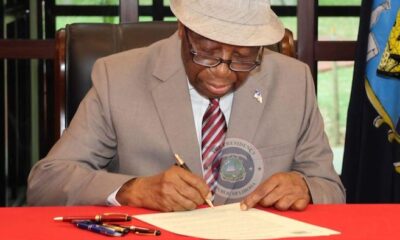

Liberia: President Boakai signs order to create war crimes court
To provide long-overdue justice to those who suffered grave injustices during the two civil wars that raged in Liberia, President...
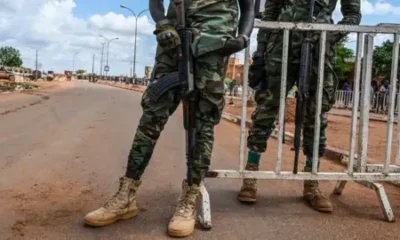

US official accuses Russian troops of entering base housing US military in Niger
According to a senior United States defence official quoted by Reuters, Russian military soldiers have entered an air base in...
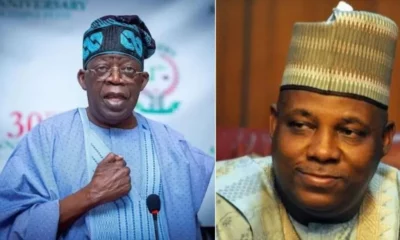

Nigeria’s presidency insists reforms prevented economic collapse
Nigeria’s presidency on Thursday reiterated that the current administration’s economic reforms of the past one year “saved the life of...
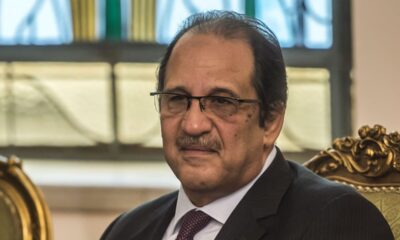

Hamas leader in talks for Gaza ceasefire with Egypt, Qatar
Ismail Haniyeh, the leader of Hamas, spoke with Abbas Kamel, the head of Egypt’s security services, and Mohammed bin Abdulrahman...
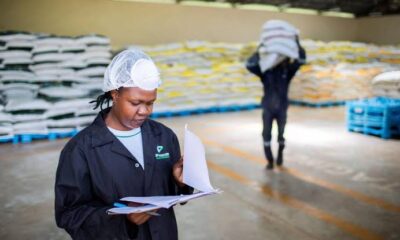

Kenya agri-tech startup iProcure placed under administration over unpaid debts
Kenyan agri-tech startup, iProcure, has been placed under administration due to its inability to clear up undisclosed debts. The advisory...
Trending
-

 VenturesNow2 days ago
VenturesNow2 days agoNigeria’s Insurance Corporation raises maximum deposit coverage from N500k to N5m
-

 Sports2 days ago
Sports2 days agoLiverpool legend Graham Souness wants ‘selfish’ Salah to leave club
-

 Metro2 days ago
Metro2 days agoNigeria’s economy will witness positive changes after painful sacrifice— VP Shettima
-

 VenturesNow9 hours ago
VenturesNow9 hours agoNigeria offers oil majors faster exit if …


